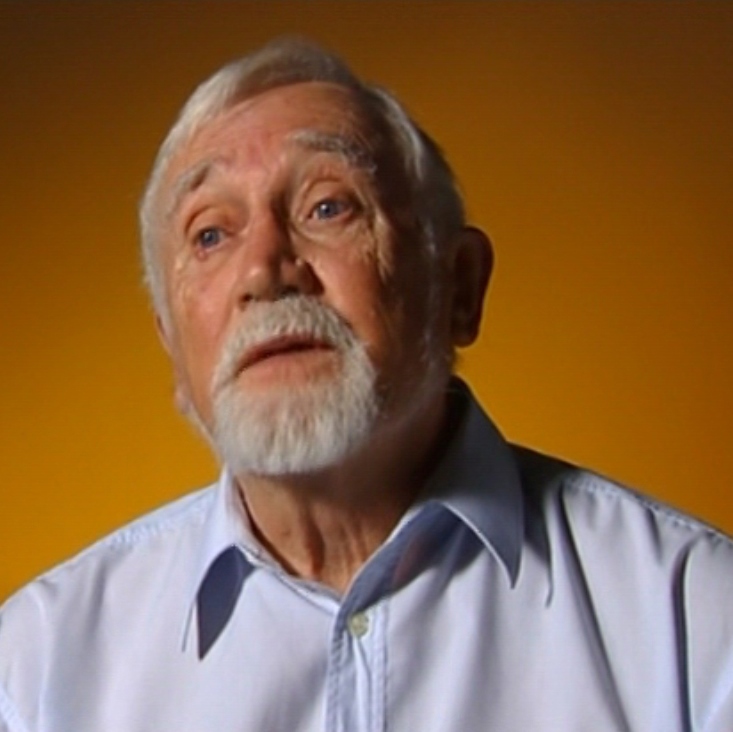Gil Brealey.
Gil Brealey, one of the pioneers of the renaissance of Australian cinema in the 1970s, died on Sunday, aged 85.
Friends and colleagues hailed Brealey as a visionary who had a sharp eye for talent and compelling stories and whose legacy was not fully appreciated.
Brealey was the founding director/chairman of the South Australian Film Corp. in 1972, where he produced Ken Hannam’s Sunday, Too Far Away and Henri Safran’s Storm Boy and funded Peter Weir’s Picnic at Hanging Rock.
An initiative of Premier Don Dunstan, the SAFC had an initial budget of $30,000 which included Brealey’s $13,000 salary, but the agency was allowed to borrow $400,000 from the government each year – loans that were repayable.
Brealey quit in 1976, blaming stress and the near-debacle of Sunday, Too Far Away, the sheep shearing saga which launched Jack Thompson’s storied film career.
After completing a report on film production for the Tasmanian government the following year he was appointed founding chairman of the Tasmanian Film Corp.
He made his first amateur films at the age of 20 while he was a student at Melbourne University and began his directing career at the ABC.
In 1969 he joined the Commonwealth Film Unit, later Film Australia, as a documentary producer, where he mentored people such as Weir, Brian Hannant and Donald Crombie. Weir and Hannant each directed a segment of Three to Go, an acclaimed trilogy which showed young Australians facing pivotal decisions about their careers.
In 1976 he was appointed as an Officer, Order of Australia, for his services to the Australian film industry and in 1996 he won the Australian Directors’ Guild’s Cecil Holmes award.
Producer Tony Buckley hailed Brealey as a “visionary who revitalised Film Australia, devised the stage-to-screen course at AFTRS and brought life to the South Australian and Tasmanian Film Corporations.”
As one of his first hires at the SAFC Matt Carroll produced Sunday, Too Far Away and Storm Boy with Brealey. “He was an unsung hero who did not get the proper appreciation for all the amazing things he did,” Carroll said.
Damien Parer credits Brealey for giving him his start in his film producing career when he was hired as a producer at the Tasmanian Film Corp. “I was very fond of him. He was an out proud man,” Parer said.
Tim Read was head of production and acting producer-in-chief at Film Australia in the late 1970s when he hired Brealey to produce the Japan segment in the Our Neighbours series. “He was a visionary, no doubt, who had a priceless ability to identify talent and good stories,” Read said.
In a 2012 interview with Felicity Morgan for the Don Dunstan Foundation Oral History Project, Brealey revealed he quit the SAFC after a stressful period from which he had never recovered.
“I had a very bad treatment from the industry about Sunday, Too Far Away, into which I inserted myself to save it, because when it was first completed as a cut we couldn’t get a distributor and it looked as though it was going to be a total failure,” he recalled.
”Ken Hannam, the Australian director we had flown out from London, deserted the project. It was only when we turned around and did a really massive re-cut – which I had to supervise and take the responsibility for – that it turned out to be such a successful film. And the way I was treated by the industry for having done that, and being the first producer in Australia to do it – (now it happens all the time) – did disillusion me about the sort of people I was dealing with.”
Matt Carroll rated Sunday as a pivotal film that was uncompromisingly Australian, and gave everyone the message the rest of the world wants our stories. “The French thought it was a doco until they read the Parisian slang subtitles at its screening at Cannes,” he added.
In 1985 he directed Annie’s Coming Out, based on the true story of the relationship between a teenager with cerebral palsy and the therapist who learned how to communicate with her using an alphabet board. The drama won the Australian Film Institute awards for best film, best female actor for Angela Punch McGregor and best adapted screenplay for John Patterson and Chris Borthwick.
Former Australian Film Commission, Fox Studios Australia and Foxtel boss Kim Williams said: “Gil was an amazing person whose spirit imbued the early period in the modern genesis of Australian film making with a restless energy and commitment to imagination and talent.
“His work at Film Australia and the SAFC in particular was distinguished and often visionary. Annie’s Coming Out was a proud and moving film which reflected Gil’s courage and creative strength; personally I wish he had made more features.”
In retirement he lived in Leura in the Blue Mountains with his long-time partner Rodney Sangwell, who survives him.



